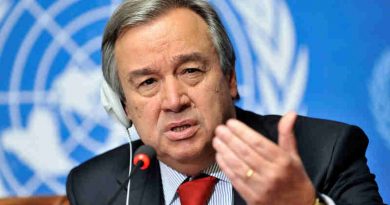Greenhouse Gas Emissions Must Fall Rapidly: UNEP Report

To meet the Paris Agreement goals, the world needs to reduce greenhouse gases by unprecedented levels over the next eight years.
As intensifying climate impacts across the globe hammer home the message that greenhouse gas emissions must fall rapidly, a new UN Environment Programme (UNEP) report finds that the international community is still falling far short of the Paris goals, with no credible pathway to 1.5°C in place.
However, the Emissions Gap Report 2022: The Closing Window – Climate crisis calls for rapid transformation of societies finds that urgent sector and system-wide transformations – in the electricity supply, industry, transport and buildings sectors, and the food and financial systems – would help to avoid climate disaster.
“This report tells us in cold scientific terms what nature has been telling us, all year, through deadly floods, storms and raging fires: we have to stop filling our atmosphere with greenhouse gases, and stop doing it fast,” said Inger Andersen, Executive Director of UNEP. “We had our chance to make incremental changes, but that time is over. Only a root-and-branch transformation of our economies and societies can save us from accelerating climate disaster.”
The report finds that, despite a decision by all countries at the 2021 climate summit in Glasgow, UK (COP26) to strengthen Nationally Determined Contributions (NDCs) and some updates from nations, progress has been woefully inadequate. NDCs submitted this year take only 0.5 gigatonnes of CO2 equivalent, less than one percent, of projected global emissions in 2030.
This lack of progress leaves the world hurtling towards a temperature rise far above the Paris Agreement goal of well below 2°C, preferably 1.5°C. Unconditional NDCs are estimated to give a 66 percent chance of limiting global warming to about 2.6°C over the century. For conditional NDCs, those that are dependent on external support, this figure is reduced to 2.4°C. Current policies alone would lead to a 2.8°C hike, highlighting the temperature implications of the gap between promises and action.
In the best-case scenario, full implementation of unconditional NDCs and additional net-zero emissions commitments point to only a 1.8°C increase, so there is hope. However, according to UNEP, this scenario is not currently credible based on the discrepancy between current emissions, short-term NDC targets and long-term net-zero targets.
To meet the Paris Agreement goals, the world needs to reduce greenhouse gases by unprecedented levels over the next eight years.



